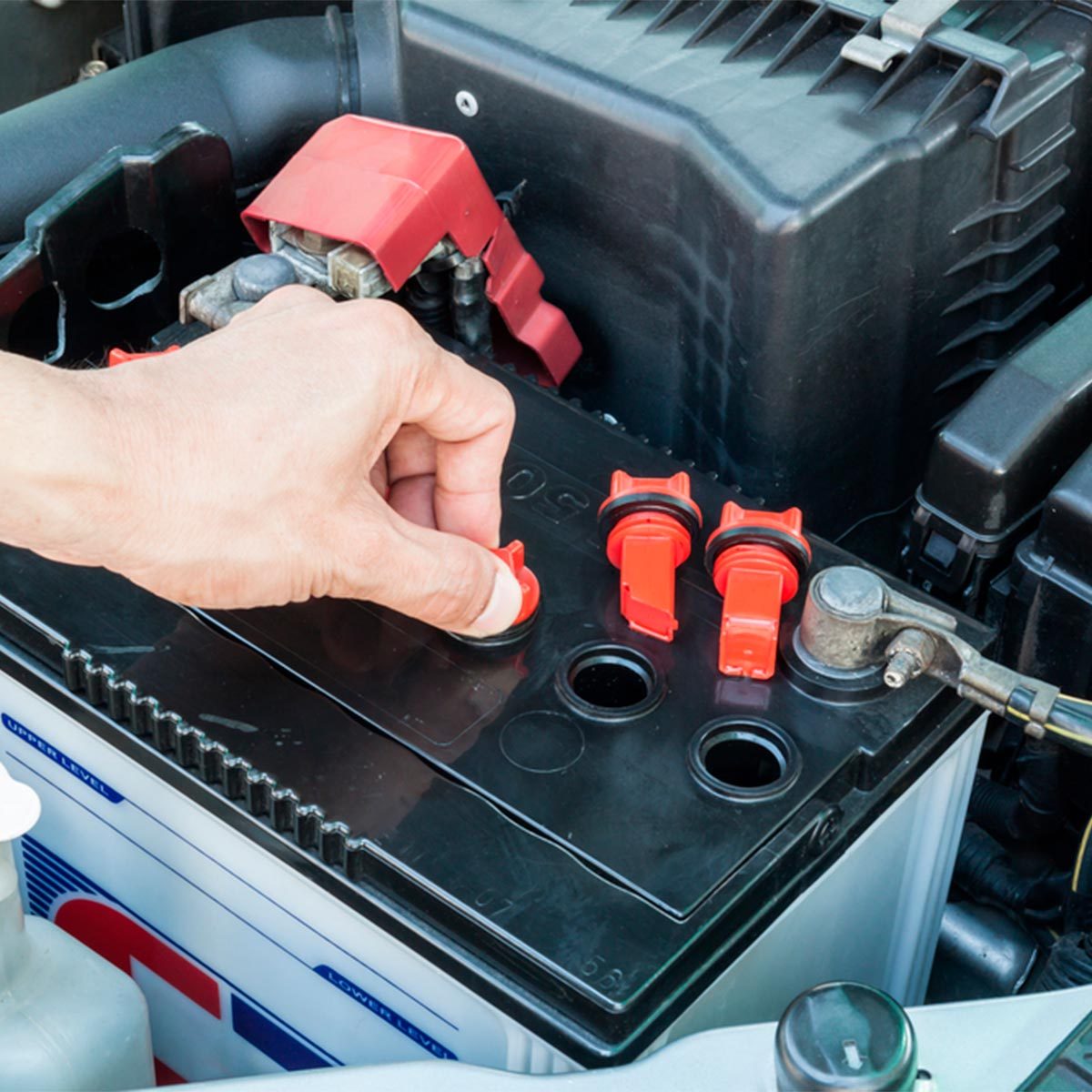Your car battery is a heavy lump of toxic metals and acid. Properly disposing of that battery can avoid an environmental disaster.

How to Properly Dispose of Car Batteries

You generally don’t think about your car’s battery until it starts giving you problems. When it’s time to replace that battery, it’s usually an easy process to swap it out. But what do you do with that old, dead battery? Don’t just throw it away — recycle it.
On This Page
Why Proper Battery Disposal Is Important
A typical car battery is made of lead plates and sulfuric acid. As you probably know, lead is one of the most toxic heavy metals. The Centers for Disease Control and Prevention (CDC) notes that lead poisoning can cause behavioral and learning problems in children. If a car battery ends up in a landfill, it’s likely to contaminate the soil and ground water.
Fortunately, automotive batteries are the most recycled consumer product in the country. Ninety-nine percent of all car batteries are recycled into new car batteries! Find out if electric car batteries are recyclable.
Safely Disconnecting Your Battery
If your car isn’t starting or is struggling on hot or cold days, it may be time to replace the battery. However, make sure you properly test it before buying a new battery. Starting problems can also be caused by loose wiring or other easily fixed problems. You may also be able to charge your car battery.
Once you know it’s time to replace the battery, be sure to do disconnect it safely, following these steps:
- Always remember to disconnect the negative battery terminal first.
- Never allow your wrench to touch the positive and negative terminals at the same time. Your battery may be “dead” for the purposes of starting your car, but it usually still has some energy. Completing a circuit with your wrench and your body can be dangerous.
- A battery is heavy. Lift with your knees, not your back, and watch your feet and fenders as you hoist it.
How to Dispose of Your Battery Safely
We know that 99 percent of all car batteries are recycled into new batteries, so that means the companies that make batteries actually do want them back!
Usually when you buy a new battery from a retailer, you pay a nominal “core charge” on top of the price of the battery. This core charge will be refunded to you when you return your old battery. There’s no core charge if you bring your old battery with you when you buy the new one.
If you need to dispose of extra dead batteries, Clarios, a battery manufacturer, offers a ZIP code-based finder for battery drop-off locations. They note that even if you aren’t buying a replacement battery, you might be able to get a credit from the store for recycling your old battery.




















